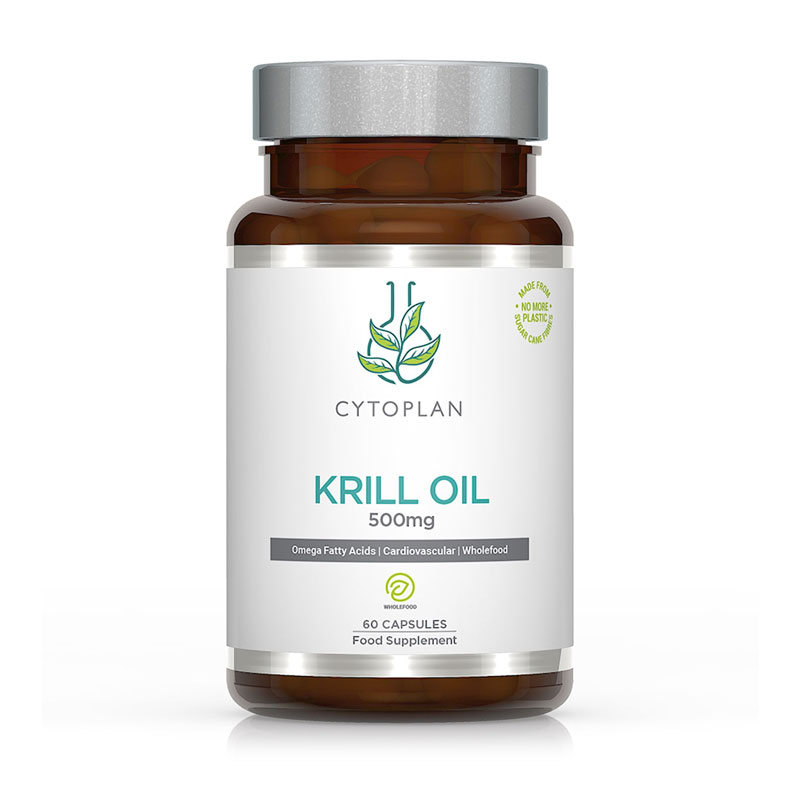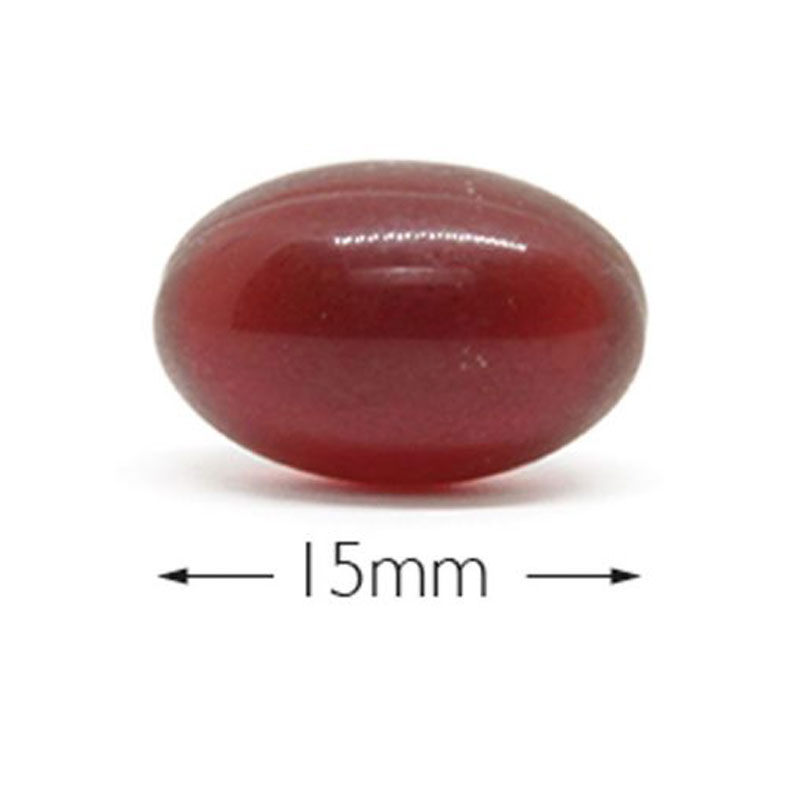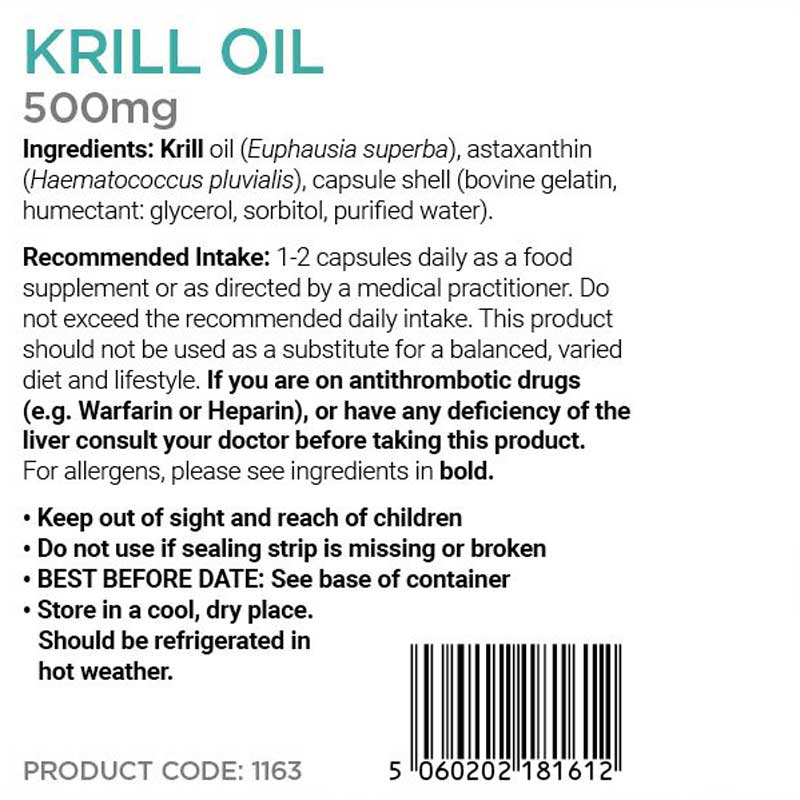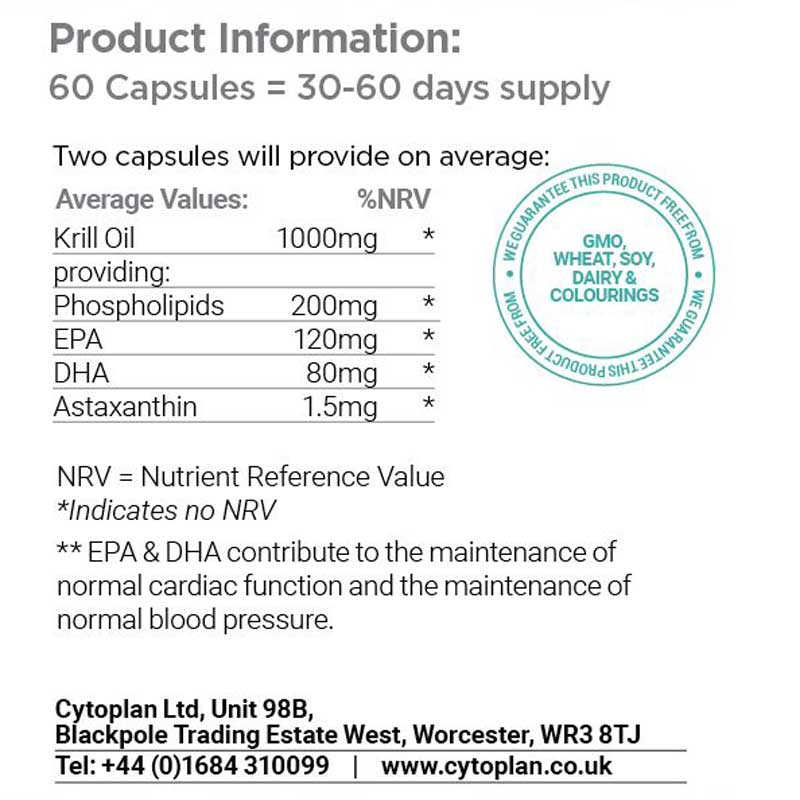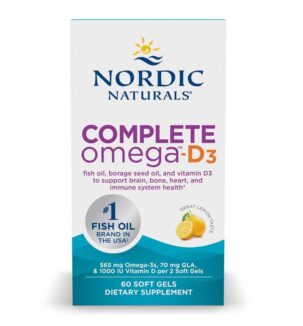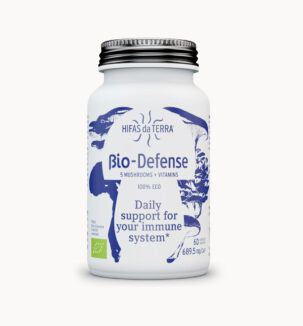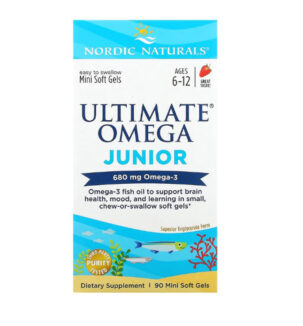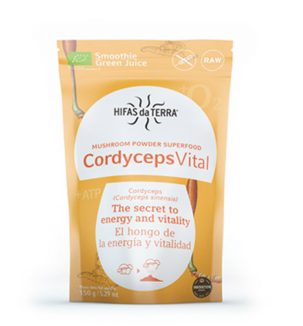Description
Krill Oil contains the beneficial omega-3 fatty acids EPA and DHA, along with the naturally-occurring antioxidant astaxanthin.
Krill oil is often considered superior to fish oil as the EPA and DHA essential fats in krill are bound to phospholipids – fatty molecules present in our own body cell walls – which means they are more easily taken into cell membranes than fish oils and support the health of our own cells. One of the phospholipids in Antarctic krill oil is phosphatidylcholine, a phospholipid attached to a choline molecule, important for brain health and often depleted during pregnancy. Choline is also essential for synthesising acetylcholine, a neurotransmitter vital for memory, and supports normal liver function. Additionally, krill oil includes astaxanthin, a potent antioxidant that helps protect against oxidative stress.
Our Antarctic krill oil has Marine Stewardship Council (MSC) and Friend of the Sea certifications. They are committed to maintaining the sustainability of krill within the strict guidelines of CCAMLR (The Commission for the Conservation of Antarctic Marine Living Resources). Our krill is from protected waters where the krill biomass harvest is limited to 1%, to conserve this valuable food staple that sea birds, whales and other marine life rely on.
Choline contributes to normal:
- homocysteine metabolism
- lipid metabolism and
- the maintenance of normal liver function
DHA contributes to:
- the maintenance of normal brain function (the beneficial effect is obtained with a daily intake of 250mg of DHA)
- the maintenance of normal vision
DHA and EPA contribute to:
- the normal function of the heart (the beneficial effect is obtained with a daily intake of 250mg of EPA and DHA)
- the maintenance of normal blood pressure (the beneficial effect is obtained with a daily intake of 3g of EPA and DHA)
- the maintenance of normal (fasting) blood concentrations of triglycerides (the beneficial effect is obtained with a daily intake of 3g of EPA or 2g of DHA)
Docosahexaenoic acid (DHA) intake contributes to the normal visual development of infants up to twelve months of age (the beneficial effect is obtained with a daily intake of 100mg of DHA).
Maternal intake of DHA contributes to the normal development of the brain and eyes of the foetus and breastfed infants (the beneficial effect is obtained with a daily intake of 200mg of DHA in addition to 250mg of EPA and DHA).



